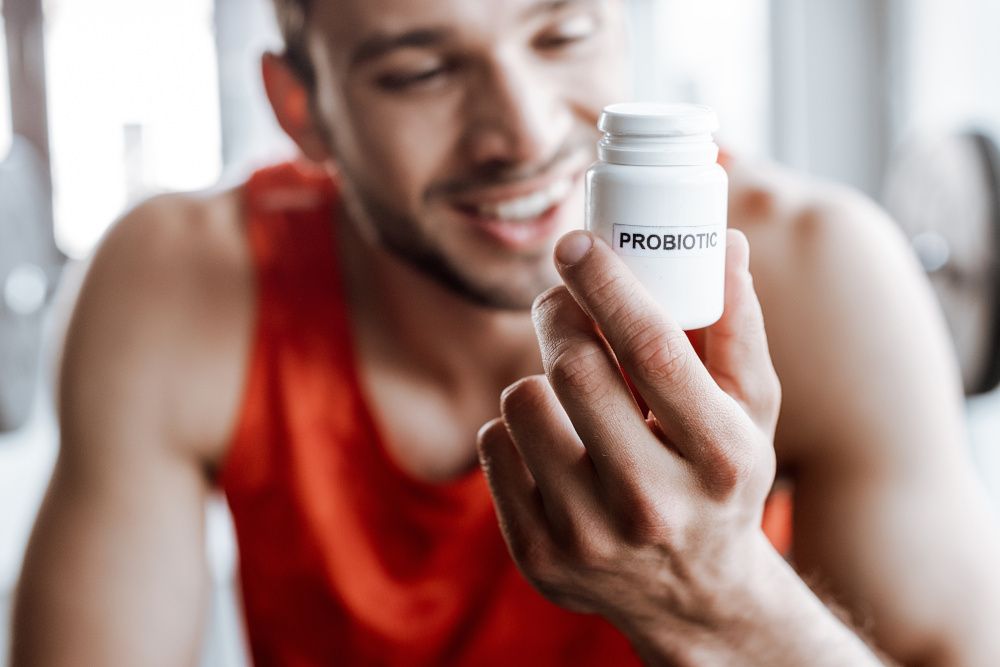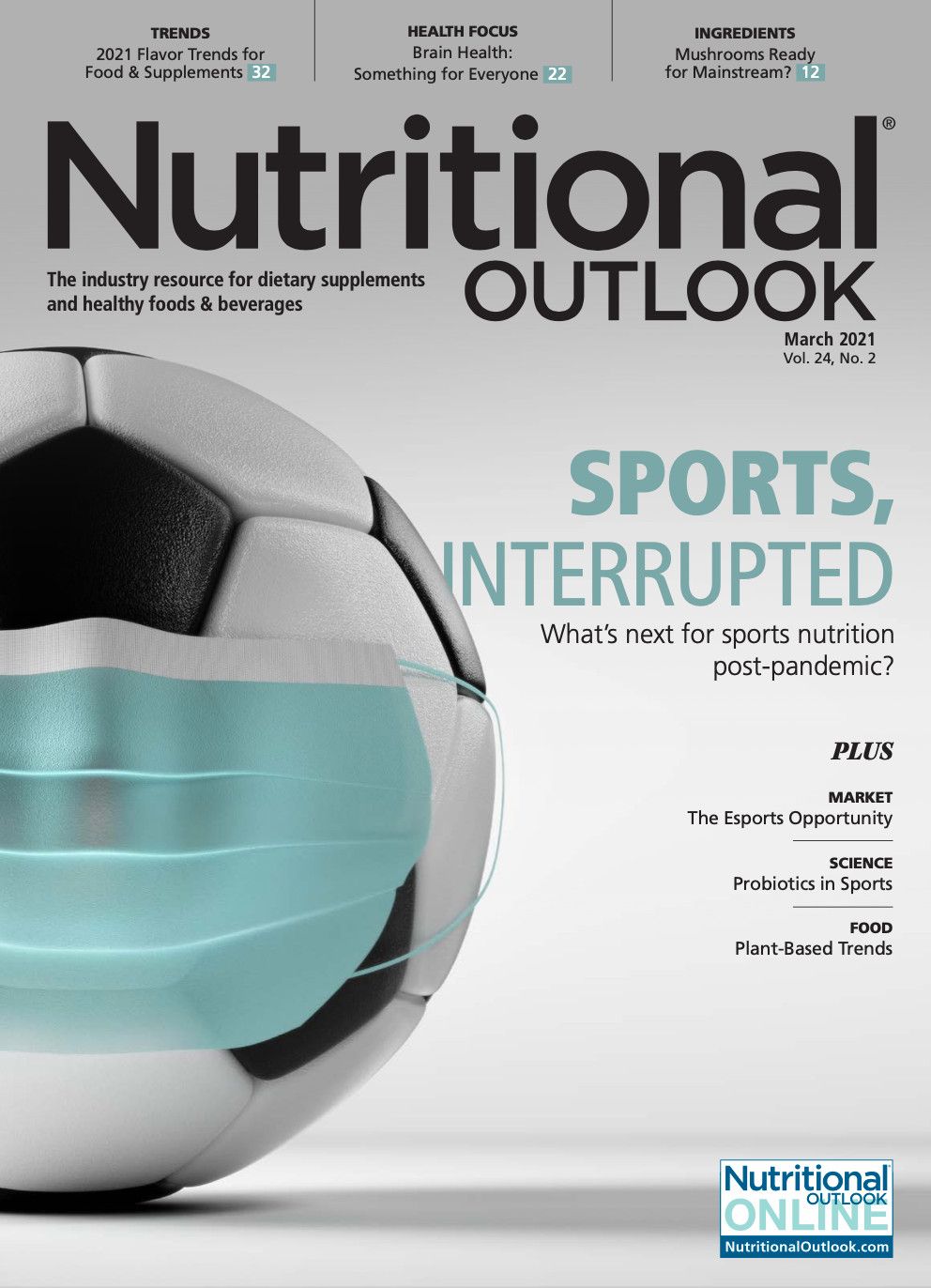Sports probiotics are gaining ground
Clinical studies are revealing that probiotics could be sports nutrition’s next big thing.
Photo © AdobeStock.com/LIGHTFIELD STUDIOS

Probiotic ingredients have long dominated the digestive health market. But now, research is demonstrating that probiotics can also improve athletic performance, shorten recovery time, and stimulate muscle growth and fat loss.
Despite the link between probiotics and sports performance, low consumer awareness remains an issue, says Zain Saiyed, PhD, FACN, head of R&D for the ingredients innovation division at Lonza (Morristown, NJ). “One of the main barriers to growth is education,” Saiyed says. “While 87% of Americans agree there is a link between digestive health and overall health1, fewer consumers are aware of how different strains of probiotics can support athletic endurance or recovery.”
Growing the sports probiotics market will require brands to educate consumers, counter online misinformation, and back up product claims with robust research. Here are some of the ways that companies are exploring the sports benefits of probiotics.
L. helveticus Attenuates Oxidative Stress
New research is demonstrating the efficacy of probiotics as recovery ingredients. One 2018 post-hoc analysis of a 2016 randomized, double-blind, placebo-controlled clinical trial examined the effects of L. helveticus on oxidative stress.
The original 2016 trial2, supported by Lallemand Health Solutions (Montreal, QC, Canada), assessed the effects of Lallemand’s branded Lafti L10 L. helveticus probiotic on IgM, IgG, and IgA bacterial antibodies in 24 male and 6 female professional athletes between the ages of 18 and 28. Subjects were randomly assigned to receive either two capsules of L10, totaling 2 x 1010 CFU of L. helveticus (n = 15), or a placebo (n = 15), every day for 14 weeks. The subjects reported their training loads weekly through the International Physical Activity Questionnaire, and from these training loads, the study authors calculated each participant’s metabolic equivalent. After 14 weeks, the placebo group experienced reductions in total salivary IgA concentration, total serum IgA antibody concentration, and serum anti-E. faecalis IgG concentration, while the probiotic group did not. The study authors determined that Lafti L10 may reduce the risk of upper respiratory tract infections following strenuous exercise.
The newer post-hoc analysis3 was performed on a subset of 22 male subjects between the ages of 20 and 24, and determined that probiotic supplementation decreased advanced oxidation protein products and malondialdehyde. Lucie Lingrand, product manager for Lallemand Health Solutions, says this study suggests L. helveticus has antioxidant properties.
“Probiotics’ ability to improve antioxidant capacity and facilitate amino acid absorption offer a great potential in the booming sports nutrition market. Moreover, probiotics have proven their efficacy in alleviating symptoms of stress through the gut-brain axis, which is an interesting feature for athletes and active people.”
Lallemand started a new study in January 2021 in partnership with the University of Florida. The Rosell Institute for Microbiome and Probiotics, a Lallemand Health Solutions research center at the National Research Council in Montreal, Canada, is investigating the effects of Lafti L10 on exercise endurance, immune response, and intestinal symptoms in endurance runners.
New Probiotic Ingredient Improves Exercise Endurance
One recently launched probiotic in particular is showing strong results in clinical trials. TWK10, a branded Lactobacillus plantarum strain produced by Synbio Technologies (Kaohsiung City, Taiwan) and licensed by Lonza, is demonstrating an effect on exercise endurance. This probiotic ingredient, which hit the market in September 2020, appears to promote physiological adaptation to exercise regimens.
One 2019 randomized, double-blind, placebo-controlled clinical trial4 examined the effects of TWK10 on body composition, aerobic endurance, and biomarkers of exercise-induced fatigue in 54 healthy subjects (27 men and 27 women) between the ages of 20 and 30. The subjects were randomly assigned to receive either one dose of TWK10 containing 3x1010 CFU of L. plantarum (n = 18), or three doses of 3x1010 CFU TWK10 for a total of 9x1010 CFU of L. plantarum (n = 18), or a placebo (n = 18), per day for six weeks. Subjects were instructed to maintain their normal physical activities and lifestyle. At baseline and after six weeks, subjects were assessed for BMI, body weight and height, and maximal oxygen consumption 90 minutes after a 30-minute treadmill workout. Blood samples and time-to-exhaustion scores were collected at the baseline and six-week exercise tests.
Both TWK10 groups experienced a dose-dependent increase in time to exhaustion after six weeks, as well as a reduction in serum lactate concentration during and after exercise. While there were no changes in body weight or BMI relative to placebo, bioelectrical impedance analysis found that both TWK10 groups lost body fat in a dose-dependent manner, and the high-dose group gained muscle mass.
Saiyed says Lonza’s partnership with Synbio Tech is enabling new research into the sports benefits of probiotics. Lonza has prioritized sports nutrition and active living as areas of increasing research focus, and Saiyed says further research may offer the potential to uncover a wider range of applications for probiotics.
Sports Nutrition Gets Brainy
Lingrand says that as the sports nutrition sector grows, companies will take a more scientific approach to marketing. Active consumers face torrents of misinformation, and most who scroll through social media don’t think to vet claims or read clinical trials. Both ingredient suppliers and consumer brands, Lingrand says, must be prepared to provide their audiences with clear, credible, transparent information about sports probiotics.
Sports Probiotics Leap Off the Starting Blocks
Saiyed believes sports probiotics will be the next major trend. Manufacturers and brands now have an opportunity to target a sports nutrition audience with educational, fact-driven messaging that inspires confidence in probiotics as a sports supplement. Probiotics are strengthening their footprint in the field of sports nutrition, and what happens next will depend on the industry’s ability to not only grow the body of research but also communicate the benefits of sports probiotics to consumers.
References
- “Probiotics: What matters to consumers fueling this category.” Linkage Research & Consulting. Published online July 10, 2019. Accessed here.
- Michalickova D et al. “Lactobacillus helveticus Lafti L10 supplementation modulates mucosal and humoral immunity in elite athletes: A randomized, double-blind, placebo-controlled trial.” Journal of Strength and Conditioning Research, vol. 31, no. 1 (January 2017): 62-70
- Michalickova D et al. “Effects of probiotic supplementationon selected parameters of blood prooxidant-antioxidant balance in elite athletes: A double-blind randomized placebo-controlled study.” Journal of Human Kinetics, vol. 64 (October 15, 2018): 111-122
- Huang WC et al. “Effects of Lactobacillus plantarum TWK10 on exercise physiological adaptation, performance, and body composition in healthy humans.” Nutrients, vol. 11, no. 11 (November 19, 2019): 2836

Polyphenols: The next generation of prebiotics is ready for liftoff
April 21st 2025Explore the prebiotic health benefits of polyphenols and the positive impact they may have on digestive and immune health. Polyphenols, such as those found in European black elderberry, may be an ideal solution for manufacturers trying to break into the digestive health space.

.png&w=3840&q=75)

.png&w=3840&q=75)



.png&w=3840&q=75)



.png&w=3840&q=75)





















